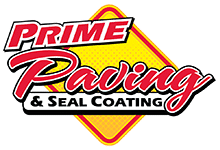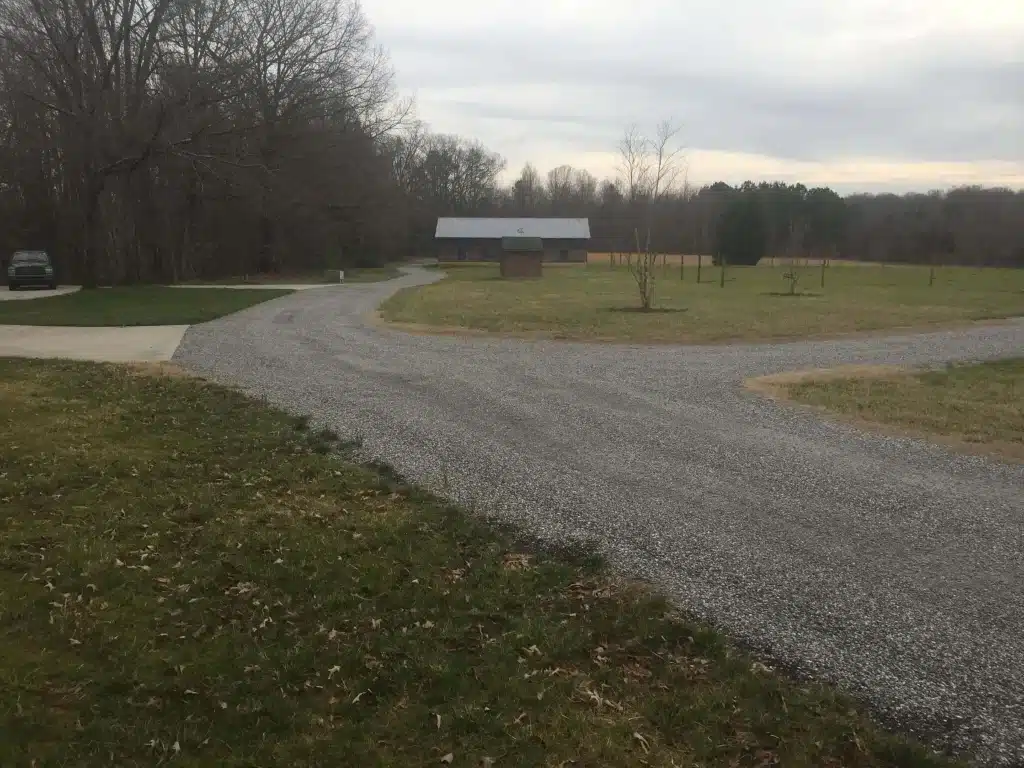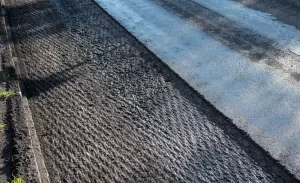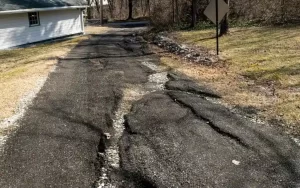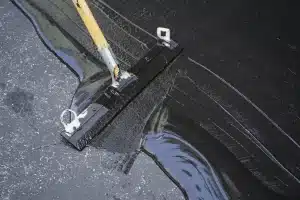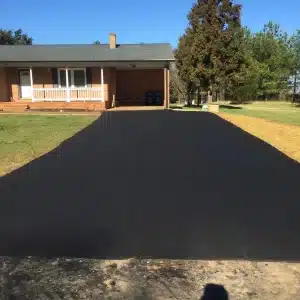Most likely, the first image that comes to your mind when someone mentions their driveway is a road that is paved with black asphalt or covered in loose gravel. However, there are other options available for your private drive, and one of those is paving with tar and chip. But is a tar-and-chip driveway right for your home?
What is a tar-and-chip driveway?
Although this term may not be familiar to you, we at Prime Paving & Sealcoating, bet you have most likely driven on one before. You may also know tar-and-chip driveways by other names such as:
- Chip-and-Seal
- Liquid-Asphalt-and-Stone
- Seal Chip
- Macadam
A tar-and-chip driveway is relatively basic in its construction. A base of gravel is laid into the roadbed, then a layer of hot liquid asphalt is poured over the gravel, and immediately following a layer of chosen stones is compressed into it to form a finished surface that can be driven on.
How is a chip sealed driveway different than asphalt?
The most significant difference between a chip sealed drive, and one that has been paved with asphalt is that the binder, or petroleum-based liquid, is applied differently. In traditional asphalt driveways, the pavement is pre-mixed at a specific temperature and rotated within a sizeable commercial drum before being laid. Conversely, in chip sealed drives, the hot liquid asphalt mixture is poured directly onto the gravel-base, then stones are compressed on top of it.
Benefits of Tar-and-Chip Paving
The best advantage of a tar-and-chip paving project is that they are more cost-effective for the homeowner. Traditionally paving with standard asphalt is more of an investment, but if you are looking for a way to upgrade your drive without the steep cost of the traditional solution, then you should undoubtedly look into chip sealing.
Paving of any kind is more substantial than just throwing out loose gravel. While stones are used in chip sealing, they do not move because they have been compressed against hot liquid asphalt to set up. Gravel tends to wash away with heavy rains and has to be reapplied often. Drive down almost any residential road during the summer months after a thunderstorm, and you will see gravel has been carried into the main roadway. With a tar-and-chip driveway, you will not have to worry about watching your investment drift away.
If you live in an area that accumulates a lot of ice and snow in the winter, these types of paving are ideal for traction. The rough surface of the stones on the first layer of a chip seal drive allows tires to grip the surface and move forward with ease compared to other paving solutions.
However, use caution when having someone snowplow your chip sealed pavement, though, because if the plow is applied with too much pressure, the driveway can be damaged.
Tar-and-chip driveways also allow for a homeowner to customize their appearance. When you pave with traditional asphalt, the only color selection you have is black. With tar-and-chip, a homeowner can choose the color and texture of the top layer of stones. Locally sourced stone will make your driveway look as though it appeared naturally within its environment. A homeowner can also choose stone that will complement the exterior of their home as well.
Finally, chip sealed driveways have no maintenance, unlike traditional asphalt, which has to be resealed every 3 to 5 years.
On average, a tar-and-chip driveway will last between 7 to 10 years, and during that time, we are confident you will love it.
If you are interested in learning more about tar-and-chip paving solutions for your home, we are here to help you. You can contact us at Prime Paving & Sealcoating and get a free estimate at any time. We look forward to hearing from you!
